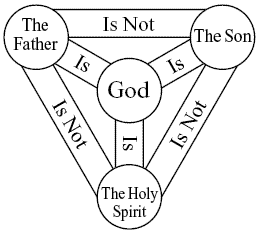What is repentance?
Greek scholars tell us there are three words used in the New Testament to denote repentance.
The verb ‘metamelomai’ is used of a change of mind, with regret or even remorse on account of sin, but not necessarily a change of heart. This word is used with reference to the repentance of Judas (Matt. 27:3). ‘Metanoeo’ means to change one's mind and purpose. This verb, along with the cognate noun ‘metanoia,’ is used of true repentance, a change of mind and purpose and life, to which remission of sin is promised.
Repentance is a change of mind but more than that it is a change of the entire mind and in fact the Bible says that we are given a new mind – the mind of Christ (1 Cor 2:16; Philip 2:5; 4:7).
According to Easton’s Bible Dictionary, repentance unto salvation consists of (1) a true sense of one's own guilt and sinfulness; (2) an apprehension of God's mercy in Christ; (3) an actual hatred of sin (Psalm 119:128; Job 42:5-6; 2 Corinthians 7:10) that compels us to turn from the sin to God; and (4) a persistent endeavour after a holy life in a walk with God and His commandments.
Easton goes on to say that a person who is truly repentant is conscious of personal guilt (Psalm 51:4, 9), pollution (Psalm 51:5, 7, 10), and helplessness (Psalm 51:11; 109:21-22). But that’s not all. Repentance is not just a knowledge of sin, but the appropriate response to God’s love and mercy in spite of our sin (Psalm 51:1; 130:4).
Is repentance then a work we do in order to earn salvation? No. True repentance is a reaction not an action. It is demonstrated in the life of a believer in response to their thankfulness for God’s great mercy and grace. We are not adding works to God’s salvation by grace through faith (Eph 2:8-9; Gal 2:16). Judas Iscariot acted with repentance when he went out and hung himself, but he did not react to the forgiveness that was offered to him time and again by the Son of God. The Bible clearly teaches that Judas died in his sin. Another way to say it might be that we demonstrate repentance “because God has saved us” and not “in order to get saved.”
Repentance is observable. In 2 Corinthians 7:11 Paul gives seven indications of God-induced repentance: carefulness (earnest and sincere concern or sorrow that the sin occurred in the first place); clearing (a personal eagerness to fix the problem); indignation (anger at self for having sinned against God); fear (of sinning again); vehement desire (to do whatever is necessary to make restitution and clear the wrong); zeal (an eagerness to conclude the matter as soon as possible); and revenge (against the wrong – you hate to see the sin or evidences of it in the lives of others). Notice that never are we casting blame on anyone else or on circumstances. The one thing your circumstances cannot control is your response to them. You respond by sin (anger, bitterness, hatred, spite, murder, etc.) because you are a sinner. So am I.
2 Peter 3:9, “The Lord is not slack concerning his promise, as some men count slackness; but is longsuffering to us-ward, not willing that any should perish, but that all should come to repentance.”
Acts 17:30, “And the times of this ignorance God winked at; but now commandeth all men every where to repent:”










